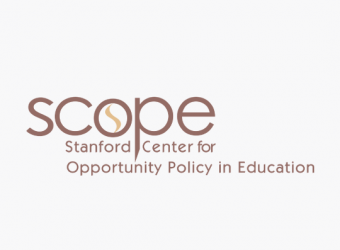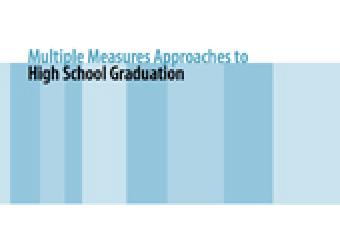Publications
Implications of Income-Based School Assignment Policies for Racial School Segregation
In this article, Sean Reardon et al. challenge the assumption that income integration guarantees racial desegregation in U.S. schools.
Intersectional Identities: "Acting White," Gender and Achievement
Prudence Carter addresses the notion that Blacks underperform in school because they fear (being accused of) "acting white."
Straddling Boundaries: Identity, Culture, and School
Prudence Carter presents the results of an investigation of the following questions: How do low-income African American and Latino youths negotiate the boundaries between school and peer group contexts?
Austin Independent School District and the School Redesign Network: A Partnership for Successful School Redesign
This report documents eight phases of the Austin Independent School District’s High School Redesign Initiative, conducted in partnership with SRN at Stanford University.
School Leadership Study: Developing Successful Principals, a Review of Research
Principals play a vital role in setting the direction for successful schools, but existing knowledge on the best ways to prepare and develop highly qualified candidates is sparse. What are the essential elements of good leadership?
Does Teacher Preparation Matter? Evidence about Teacher Certification, Teach for America, and Teacher Effectiveness
This multi-authored study examines whether certified teachers are, in general, more effective than those who have not met the testing and training requirements for certification.
Keepin' It Real: School Success beyond Black and White
In her book, Prudence Carter refutes common wisdom about teenage behavior and racial difference, and shows how intercultural communication, rather than assimilation, can help close the black-white gap.
Closing the Gap: Moving From Rhetoric To Reality In Opening Doors To Higher Education for African-American Students
This report from the Legal Defense Fund argues that if the gap in college enrollment and graduation persists, we risk losing a generation of African-American youth.
Multiple Measures Approaches to High School Graduation
In this report, Linda Darling-Hammond et al. show how the design of high school graduation policies can have important consequences for teaching, learning, and student attainment.
From Racial Liberalism to Racial Literacy: Brown v. Board of Education and the Interest-Divergence Dilemma
Lani Guinier argues that to address the full range of racialized inequities, racial justice advocates need to move beyond the early tenets of racial liberalism to racial literacy.
Beyond Ascription
Prudence Carter argues for a more complex understanding of racial identity and meaning making in order to better understand and alleviate academic attainment gaps among all groups of American students.
Black Cultural Capital, Status Positioning, and the Conflict of Schooling for Low-Income African American Youth
In this article, Carter provides evidence of the coexistence of “dominant” and “non-dominant” forms of capital within the social and academic lives of poor ethnic minority students.
Reinventing High School: Outcomes of the Coalition Campus Schools Project
This study of the Coalition Campus Schools Project in NYC documents a unique “birthing” process for new, small schools created as part of a network of reform-oriented schools.
10 Features of Good Small Schools: Redesigning High Schools, What Matters and What Works
Linda Darling-Hammond provides an overview of design features found in successful small schools.
Between a ‘Soft’ and a ‘Hard’ Place: Issues of Gender Identity in the Schooling and Job Behaviors of Low-Income Minority Youth
An article by Prudence Carter in "Sociological Studies of Children and Youth."
Colorblindness as a Barrier to Inclusion: Assimilation and Nonimmigrant Minorities
Hazel Markus et al. propose an alternative model of inclusion, which acknowledges differences attached to group identity while creating a setting that is accepting of differences as non-limiting.









